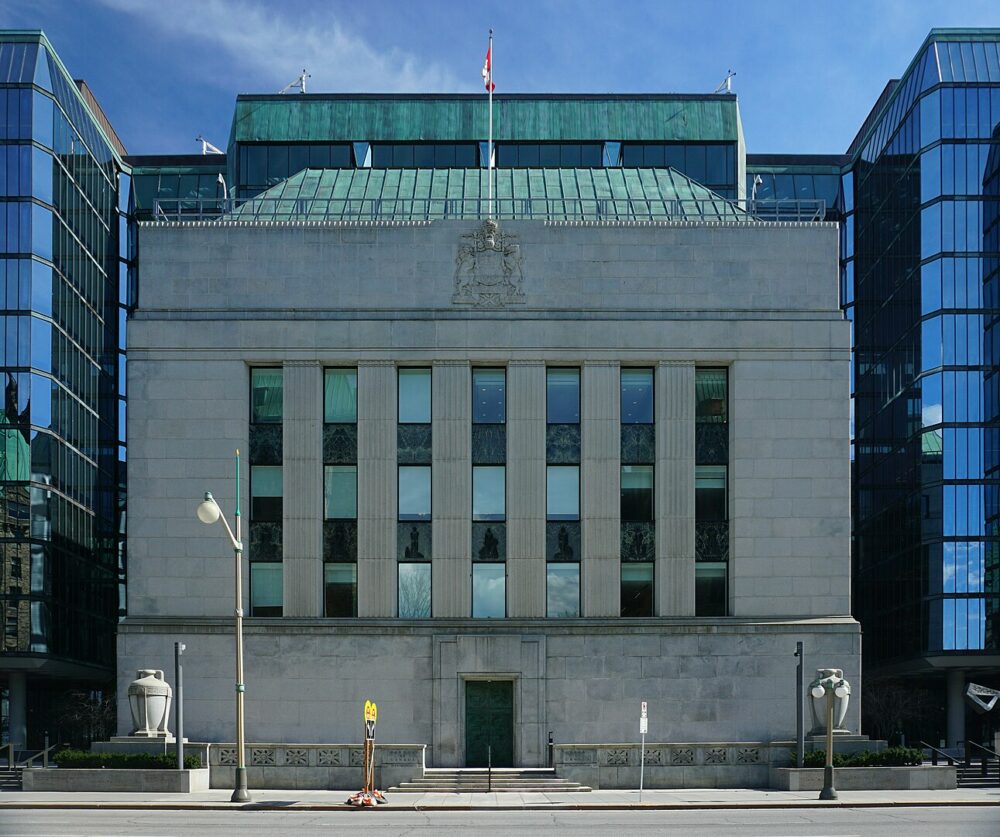Canadians could have a wider range of options in terms of the form their money takes in the future.
On Monday, The Bank of Canada launched an online public consultation to determine the features to be included in a digital Canadian dollar.
“As Canada’s central bank, we want to make sure everyone can always take part in our country’s economy. That means being ready for whatever the future holds,” said Senior Deputy Governor Carolyn Rogers.
“We want to hear from Canadians about what they value most in the design of a digital dollar. This will help us make design choices and ensure that it is secure, reliable and meets the needs of Canadians.”
A central bank digital currency (CBDC) is a digital form of a country’s fiat currency that is issued and backed by the central bank. CBDCs are designed to function as a secure and reliable means of digital payment, offering the benefits of cryptocurrencies, such as speed and efficiency, while being supported by the full faith and credit of the government.
According to a Bank of Canada release, there is no necessity for a digital Canadian dollar and the decision to issue one lies with the Parliament and the Government of Canada. However, if the Bank were to issue a digital Canadian dollar, it must be designed to meet the requirements of Canadians.
Therefore, the bank is conducting an online consultation to determine the most important features that Canadians want. In addition, the bank is seeking feedback on related topics such as potential usage, necessary security features, and concerns regarding accessibility and privacy.
“We want to hear from Canadians about what they value most in the design of a digital dollar. This will help us make design choices and ensure that it is secure, reliable and meets the needs of Canadians,” Rogers said.
If a digital Canadian dollar is issued in the future, the Bank of Canada assures that bank notes will still be available for those who prefer them. However, there may be a time when bank notes are not commonly used in day-to-day transactions. This could lead to exclusion of many Canadians from participating in the economy.
Read more: Cipher Mining adds another 11,000 ASIC rigs to its fleet in deal with Canaan Inc.
Read more: Government of Nigeria approves official blockchain policy
Bank of Canada notes threat posed by other CBDC and crypto
The Bank of Canada also raises the possibility that other countries’ central bank digital currencies or private cryptocurrencies could become widely used in Canada in the future. This could undermine the role of an official currency issued by Canada’s central bank, which is the Canadian dollar, and potentially put the stability of our financial system at risk.
A report by Juniper Research has predicted a significant increase in the value of CBDCs. The report forecasts that by 2030, the current value of USD$100 million will surge to USD$213 billion. The adoption of CBDCs is expected to be driven by governments, particularly if they use them to improve financial inclusion and gain greater control over digital payments.
The implementation of CBDCs is anticipated to increase access to digital payments, especially in emerging economies where mobile penetration rates are higher than banking penetration rates. The report also states that by 2030, 92 per cent of CBDC transactions will be for domestic payments. Although the sector is still in its early stages, pilot projects could drive its growth of over 260,000 per cent in the years to come.
The Atlantic Council reports that over 114 countries are currently exploring the possibility of implementing a CBDC. This number has increased significantly since May 2020, when only 35 nations were contemplating the use of CBDCs. In 2023, more than 20 countries, such as Australia, Thailand, Brazil, and India, are expected to make significant strides towards launching pilot projects for CBDCs.
Follow Joseph Morton on Twitter
joseph@mugglehead.com













